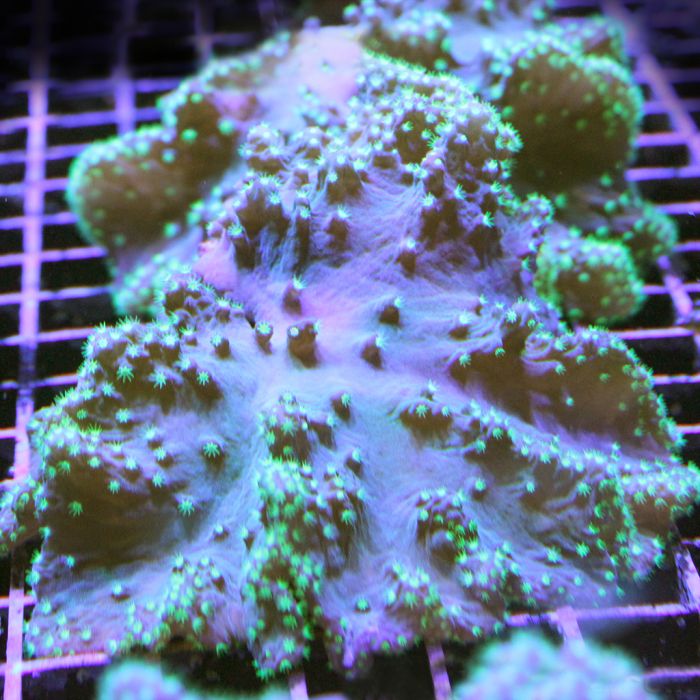Ultra Cabbage Coral
These corals receive most of their energy by utilizing the photosynthetic algae contained within their tissues. They will also benefit from occasional feedings of phytoplankton. Specimens collected from the South Pacific have much more vivid colors than those from Indonesia.
While leather corals have non-stinging tentacles, it is possible for them to release potent chemicals into the water which adversely affect the growth of stony corals; the use of carbon filtration (changed frequently) and regular water changes can minimize this. They occasionally retract all polyps and develop a waxy sheet over the surface which makes them look wet underwater; this is a natural cleansing behavior. Given good water flow the sheet will be shed into the water and the polyps will re-emerge. The sheet will break down naturally, but should be removed if seen floating in the water or if it covers another coral.
Once established this coral is very hardy, but it may be prone to several types of pests. Snails such as the rapa rapa, little egg cowrie, nudibranches, and worms such as syllid worms (among others) may prey on soft corals. We recommend every coral be dipped before placed in a display aquarium. Leather corals may also be sensitive to the aluminum oxide in some phosphate-absorbing media.
This easy to keep coral grows as delightful ruffles extending a few inches from the rock. It comes in shades of tan to pink with tiny polyps scattered sporadically over its surface and along the edges of its ruffles.
- Difficulty: Easy
- Growth Speed: Fast
- Lighting: Low - Medium
- Average Placement: Low - Middle
- Water Flow: Medium - Strong
- Temperament: Semi-Aggressive
Customers who bought this also purchased
 Fox CoralOut of stock
Fox CoralOut of stock
















